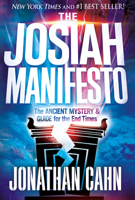Book Overview
From William R. Forstchen, the New York Times bestselling author of the One Second After series, comes Five Years After, a near-future thriller where John Matherson must contend with new threats to the fragile civilization that he helped rebuild.
Five years after The Final Day, the Republic of New America has all but collapsed into regional powers and the world at large is struggling to remain stable as regional conflicts ravage the post EMP landscape. After several years attempting to lead a quiet life, John Matherson receives the news that the President is dying from a possible assassination attempt, and is asked to step in to negotiate with what appears to be a new military power hidden in the wreckage of the world. Pulled back into the fray, John struggles to hold the tottering Republic together. Facing threats on multiple fronts, he races against time to stop another EMP attack on the former United States and China, putting years of progress at risk. With so much of his work under threat, John must find the strength within to start over, so that he can save the country and the people that he holds dear from even greater calamity.You Might Also Enjoy
Customer Reviews
Rated 5 starsMust Read In Today's World!
Opens up your mind to things you thought was possible, just a reminder that confirms ALL those crazy thoughts might be TRUE!
1Report
Rated 5 starsDystopian
This is a good book, the author gives hints as to what has happened in the previous books in the After series, so you don't feel lost if you are reading it for the first time. Highly recommend. Especially liked that there weren't the usual bad guys and things that are found in most of the #dystopian, #postapocalyptic books. I received a complimentary copy of #FiveYearsAfter from #ForgeBooks I was under no obligation to...
3Report










































